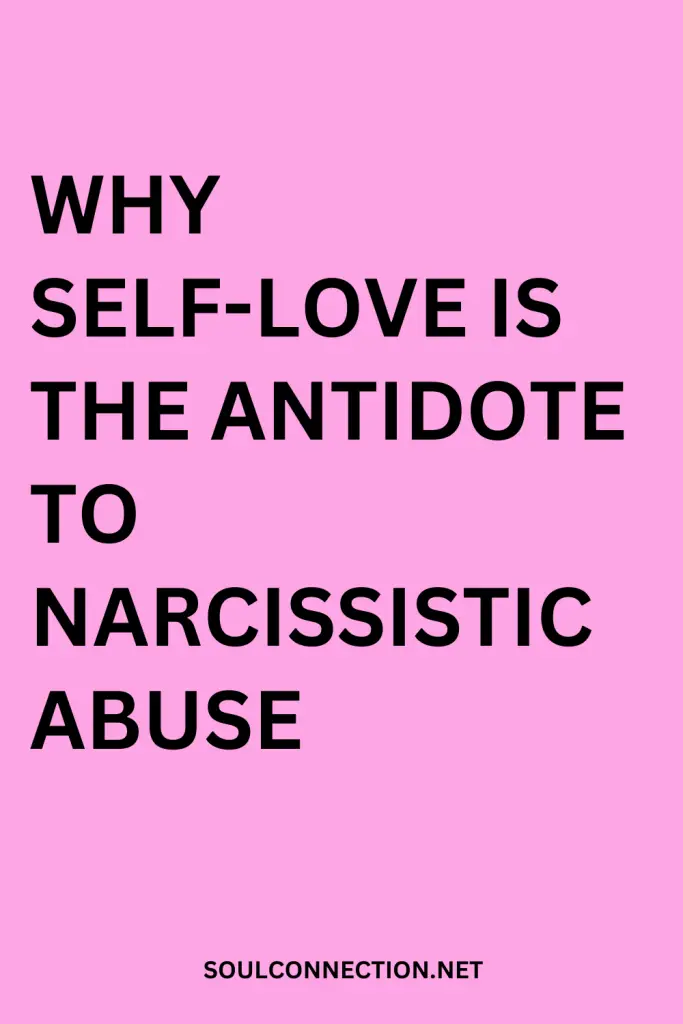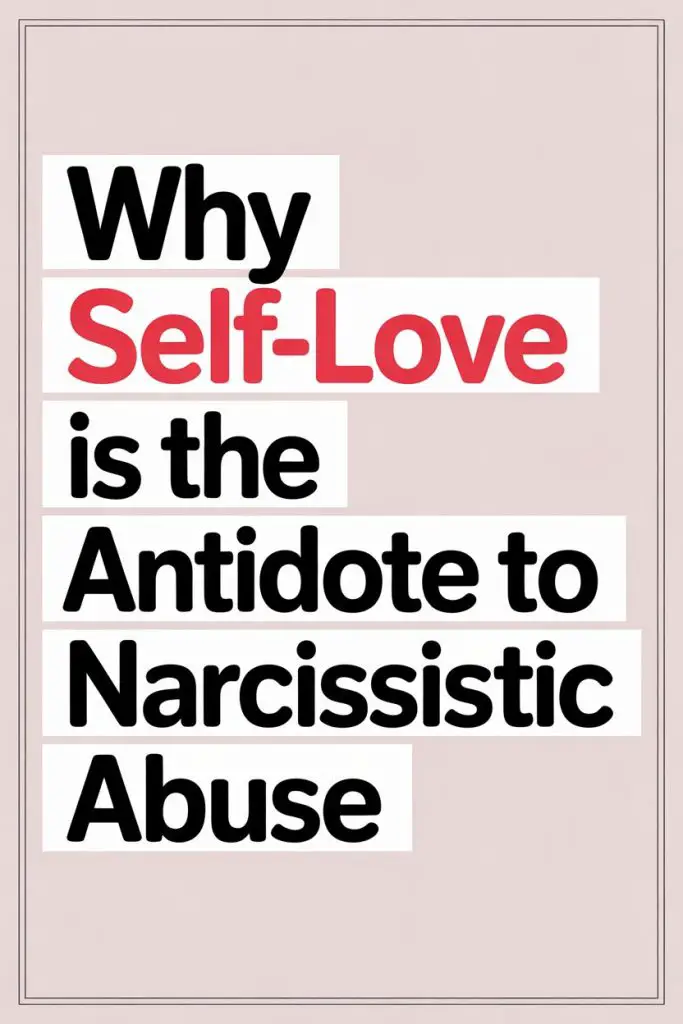Some moments in life call for a hot cuppa, a deep breath, and a good look in the mirror. Realizing you’ve been tangled up with a narcissist? That’s definitely one of them.
Narcissistic abuse leaves its mark. It sneaks into your sense of self, distorting your view of love, boundaries, and even reality.
The aftermath? A swirl of self-doubt and a bucket-load of bruised confidence. It’s no wonder so many survivors feel completely lost.
Plenty of folks will tell you to “love yourself” as if it’s as simple as buying a new moisturizer.
But self-love isn’t just a fluffy slogan on a mug. It’s the sturdy raft that can keep you afloat while you’re swimming away from the emotional Titanic that is narcissistic abuse.
Here’s how self-love flips the script and helps you break free.
Narcissistic Abuse Wounds Your Sense of Self
Narcissists have a real knack for rewriting reality. Gaslighting, blame-shifting, and endless criticism—these are their greatest hits.
Over time, their victim starts to second-guess everything: “Am I overreacting? Did I cause this? Why do I feel crazy?”
All that self-doubt isn’t an accident—it’s exactly what keeps people stuck.
Healing starts when you see the damage for what it is: not a personal failing, but a direct result of someone else’s manipulation. Self-love shines a light on the smoke and mirrors, helping you remember your worth was never up for debate.
Self-Love Rebuilds Trust… In Yourself
Years of narcissistic games can make anyone mistrust their own judgment. Doubting your feelings, instincts, and memory becomes your new normal.
Self-love gives you permission to trust those inner nudges again. It’s the gentle nudge that says, “No, you’re not overreacting. No, you’re not too sensitive. You’re a whole person with real needs.”
Try this: Next time you get that gut feeling—listen to it. Even if it’s something small (“I don’t want to go to that dinner”), honor it. Self-trust is like a muscle; each rep makes it stronger.
Boundaries: Self-Love’s Secret Superpower
Narcissists treat boundaries the way toddlers treat bedtime: with absolute disdain. Saying “no” never seems to stick, and you end up feeling guilty for even trying.
Self-love puts boundaries back on the map, without apology. Setting limits isn’t rude, it’s self-respect in action.
It’s okay to say no. It’s okay to walk away from conversations that feel like emotional whiplash. It’s even okay to block, mute, or ghost someone who keeps trampling your peace.
If the idea of setting boundaries makes you break out in a sweat, start small. Even a tiny “no” is a step toward reclaiming your turf.
Rewriting the Script About Love and Worth
Narcissists are experts at convincing you that love is conditional—something you have to earn by tiptoeing around their moods or sacrificing your needs.
Self-love calls foul on that nonsense. Real love doesn’t require shrinking yourself down to fit someone else’s mold. It’s about being cherished for who you actually are, not how well you play the role of People Pleaser Extraordinaire.
Next time that old voice pipes up (“You’re only lovable if you’re perfect”), hit mute. Replace it with something kinder—even if it feels awkward at first. No one’s ever hated themselves into a happy relationship.
Self-Love Is a Shield Against Manipulation
Narcissists read people like instruction manuals. They spot insecurities and zero in, poking at your soft spots until you’re convinced you need their approval to function.
Self-love is the Teflon coating they can’t quite penetrate. It helps you recognize when someone’s playing mind games and refuse to pick up the pieces.
Suddenly, you spot the guilt trips, the gaslighting, the “If you really loved me, you’d…” for what they are: manipulation tactics, not measures of your worth.
You get to decide whose opinions matter. Spoiler: It doesn’t have to be theirs.
Healing Isn’t Linear—And That’s Okay
If you’re waiting for a Hollywood montage of healing—cue the power ballad and wardrobe makeover—real life’s going to disappoint.
Some days, self-love feels strong. Other times, the old doubts creep in, and you find yourself questioning everything again.
That’s not failure; it’s being human. The key is catching yourself sooner and offering the same compassion you’d give a friend. Would you berate your best mate for having a tough day? Didn’t think so.
Progress means fewer detours, not zero bumps in the road.
Self-Love Helps You Spot Red Flags Early
Nothing sharpens your radar for narcissists like having survived one. Self-love takes that up a notch.
When you value your own peace, the little warning signs—love bombing, boundary-pushing, guilt trips—don’t get swept under the rug. You trust yourself enough to walk away at the first whiff of trouble.
Dating again? Self-love is your best hype squad. It helps you hold out for someone who respects your boundaries instead of testing them.
Reclaiming Joy and Independence
After narcissistic abuse, joy can feel like a distant memory. Self-love helps you rediscover what actually lights you up—apart from anyone else’s opinions.
Try reconnecting with old hobbies or discovering new ones. Take yourself out for coffee. Dance in your kitchen. Wear the “ridiculous” hat just because it makes you smile.
The point isn’t to impress anyone else—it’s to enjoy your own company again.
Turns out, happiness isn’t a group project.
Self-Love Attracts Healthier Relationships
Worn out by a narcissist’s drama, you might swear off love altogether. (Understandable.) But self-love doesn’t mean shutting out connection; it means raising your standards.
When you know your worth, you won’t settle for crumbs. You spot love-bombing, negging, and other trickery for what they are, and you gravitate toward people who treat you with respect.
Healthy people are drawn to those who respect themselves—think of it as emotional karma.
How to Practice Self-Love When You’re Still Healing
Okay, easier said than done, right? The “self-care” industry would have you believe all it takes is a bubble bath and some rose quartz. Self-love runs deeper.
Here are some practical ways to start:
- Talk to yourself like you would a friend. Seriously, if you wouldn’t say it to your nan, don’t say it to yourself.
- Treat your body with kindness. Feed it, rest it, move it. Your body’s not the enemy—it’s your lifelong sidekick.
- Write down things you’re proud of, no matter how small. Survived a day without texting your ex? Brushed your teeth before noon? That counts.
- Say no, even when it feels weird. Especially when it feels weird.
- Seek support when you need it. Therapy, support groups, or just a trusted mate. You don’t have to go it alone.
- Be patient. You won’t become a self-love guru overnight. Progress, not perfection.
The Self-Love Revolution Starts Here
Narcissistic abuse may leave scars, but it doesn’t get to write the ending. Self-love is the not-so-secret ingredient that helps you reclaim your life, your joy, and your peace of mind.
It’s not always easy. Sometimes it’s downright hard. But every time you show up for yourself—every time you refuse to let someone else dictate your worth—you’re rewriting the rules.
Nobody gets to decide how lovable you are but you.
And that? That’s the true antidote.


